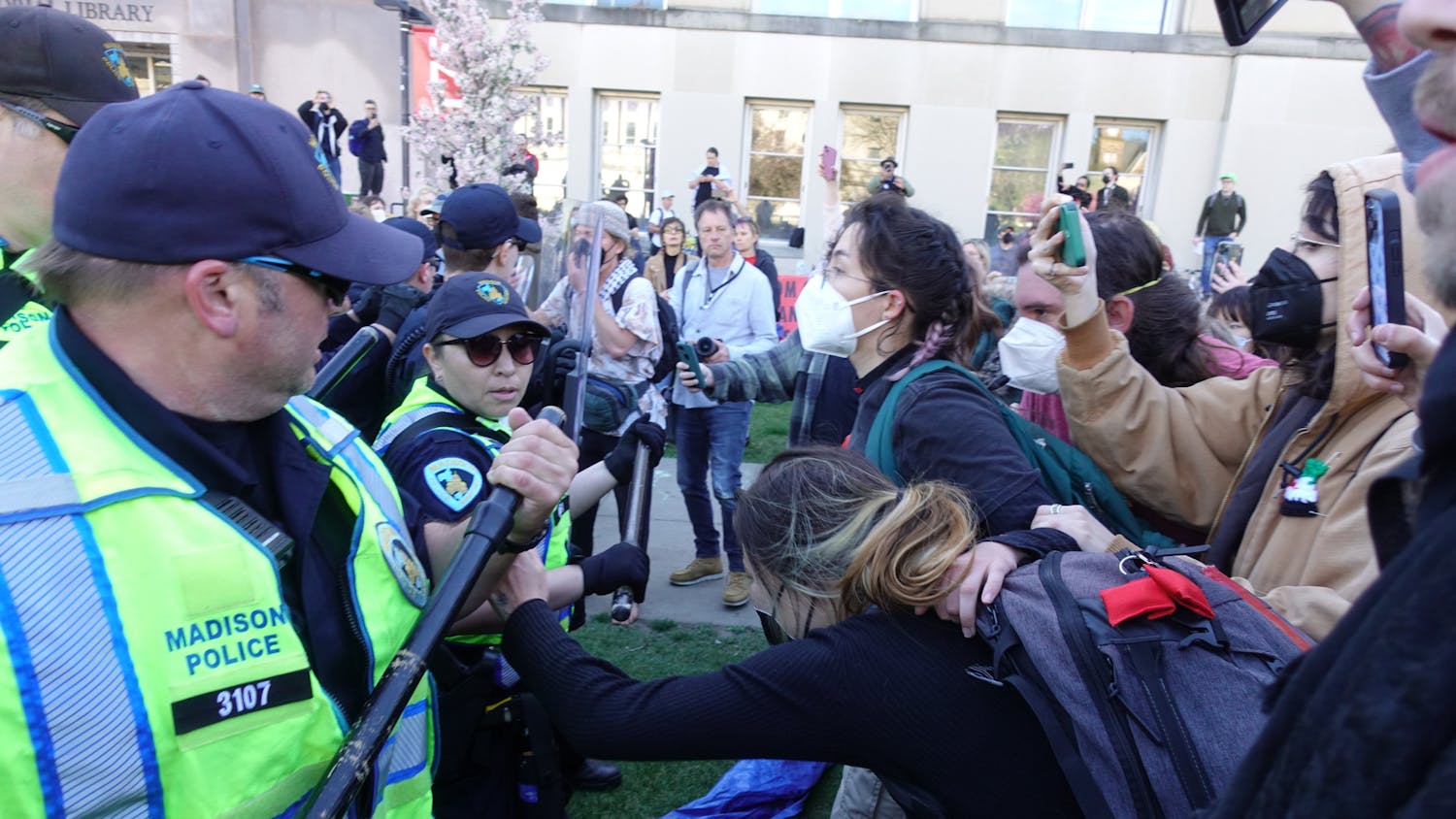The United Nations Environment Programme reports that about one third of all food produced for human consumption is wasted, which is around 1.3 billion tons.
While individuals can take steps to reduce their food waste by buying only what they know they will use or freezing food before it goes bad, grocery stores do not have this same level of control. Some, however, have found a way to make use of at least some of the food thrown away there. UW-Madison student Megan Christensen frequently goes to grocery store dumpsters to look for salvageable food, which she refers to as “rescued food.”
Christensen first found out about food rescuing from floormates at the GreenHouse Learning Community on campus.
“I was a little nervous at first, but one night I went with to Whole Foods and was amazed. Everything was bagged, clean; we even found a bag of precut pineapple slices,” Christensen said.
Although she enjoys the free food she gets from grocery store food waste, she said it frustrates her that so much food is wasted in the first place.
“As a farmer, it's pretty horrible to see all of this perfectly good food tossed because I know how much water, fertilizer and work was put into growing it,” Christensen said.
To prevent this waste, UW-Madison dining halls are taking steps to reduce the amount of food that gets thrown into dumpsters. Associate Director of Dining Julie Luke described how the university is working to achieve this goal.
She said that not only is reducing food waste beneficial for the environment, it is also important to use the money that students pay for housing and food efficiently.
The first way the dining halls try to reduce waste is through systematic ordering. The dining administration has been collecting data on food orders and sales for several years. Its electronic monitoring system uses past data to recommend how much of a certain item to order, which helps ensure that the total amount of unused food is lower.
However, this method does not totally eliminate wasted food. Instead of throwing excess food away, university dining halls partake in multiple programs that use or donate food to those in need. Luke said the dining halls try to donate to students and people living in the downtown area as much as possible.
There are two student organizations that take donations from dining halls, the Food Recovery Network and The Campus Kitchens Project. Both of these organizations are local branches of national nonprofits. They act as liaisons between campus dining halls and local food pantries and other nonprofits that donate food to those in need.
Additionally, UW-Madison dining halls have been partnered with the Second Harvest Foodbank for more than 15 years. Second Harvest Foodbank is part of a larger network of food banks that trade products with each other to distribute food to local pantries.
All these organizations help cut down on food waste, and at the same time reduce hunger in the Madison area. To contribute even more food to these organizations, efforts are underway to create a new program that allows students with money leftover on their Wiscards at the end of the year to donate the balance.
The money from this program would go to purchasing food to supplement the donations giving the organizations a wider variety of food to donate to those in need. Though this program is still in the planning phase, work is continuously being done in the Madison area to reduce the amount of excess food waste.






